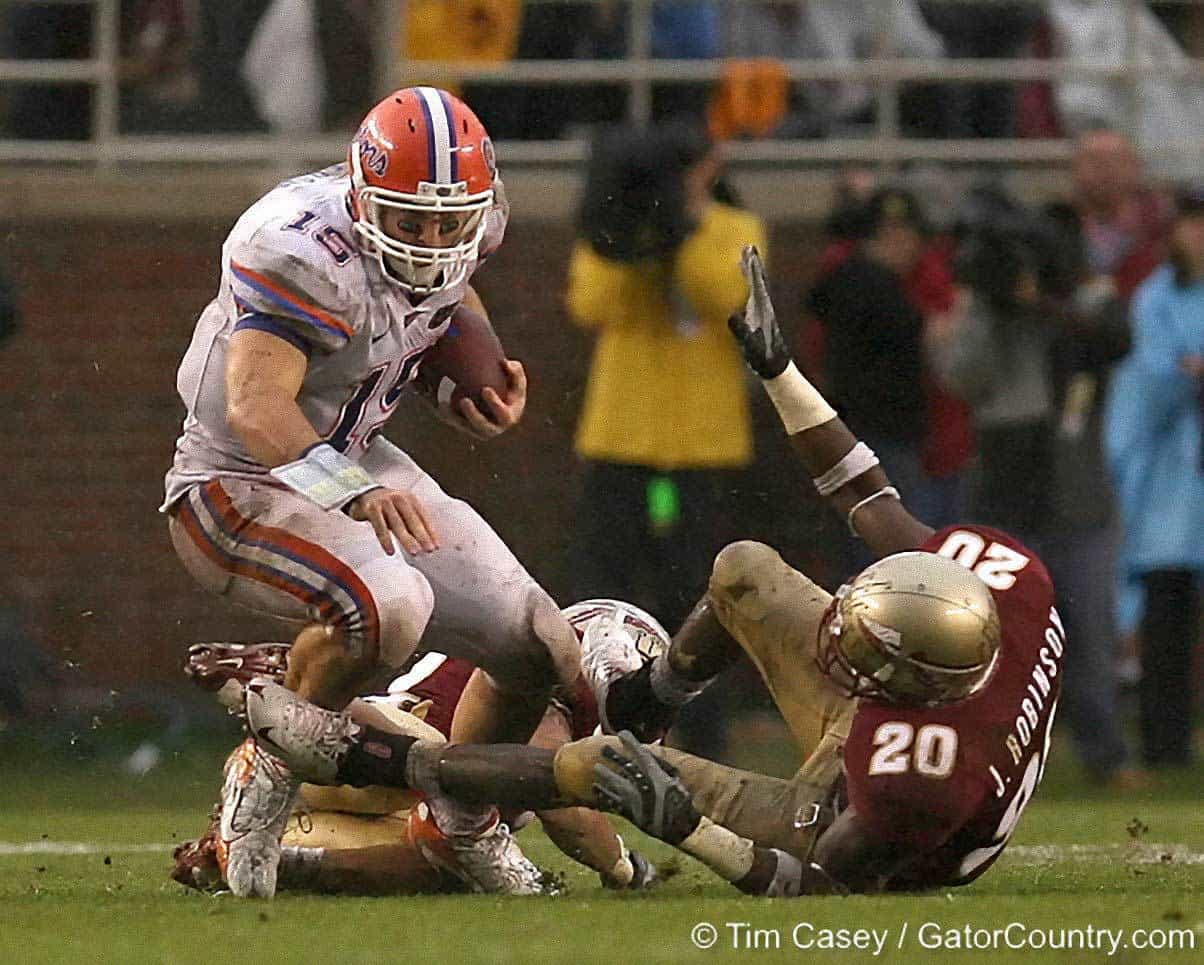Last week when the Heisman Trophy finalists were announced, there was basically no one noting the classes of the players. For the record, Kyler Murray is a junior this year and Tua Tagovailoa and Dwayne Haskins are sophomores.
The fact that two of the three were sophomores is mere trivia, not a defining feature of the vote this year. For that, Tua and Haskins can thank Tim Tebow and Dennis Dixon’s fragile ACL.
It was only 11 years ago that Tebow became the first sophomore to win the Heisman, which is not that long ago in the extensive history of the award. Had he not broken through that season, it would have been at least two more years if not longer for an underclassman to take home the stiff arm trophy.

Tebow did need a little help to make history. Oregon’s Dixon was running away with the award until he tore his ACL in November. That opened the door for someone else to take the lead.
There was not another singularly obvious candidate besides Dixon. What put Tebow over the top was the fact that he became the first player in college football history to both pass for and run for at least 20 touchdowns in a season. Breaking that statistical barrier was enough to allow the stodgy Heisman voters to break their own barrier. It also didn’t hurt that he accounted for 51 total touchdowns through the end of the regular season in that process, a breathtakingly high number for the time.
If Dixon had stayed healthy and won the 2007 trophy, Tebow almost certainly wins in 2008 as a junior. Sam Bradford did have an excellent year on what was then the highest-scoring offense in college football history, but the Heisman voters likely would’ve told him to wait his turn like they would’ve done with Tebow the year prior. That is how the award had always worked for superlative underclassmen — just ask Rex Grossman. Tebow himself had better stats in 2007 than in 2008. However, the Gator team was better and appeared in the national championship game in ’08. The trophy would have been Tebow’s that year.
Mark Ingram won the 2009 Heisman as the third straight sophomore, but I highly doubt he would have won it if a sophomore had not done it yet. Ingram took the award almost by default in a weak year for Heisman candidates as the best offensive player on the top-ranked team. Accordingly, his season doesn’t really stand out among fellow Heisman winners.
You can see that in the fact that Ingram’s win was the closest vote ever. He barely held off Stanford’s Toby Gerhart and Texas’s Colt McCoy, both upperclassmen, for the win. If giving Ingram the trophy would have made him the first sophomore to claim it, I strongly believe that either Gerhart or McCoy would have ended up winning it instead. Ingram did not have a record like Tebow’s 20-20 mark to justify him as the history maker.
Juniors Cam Newton and Robert Griffin III won the next two before Johnny Manziel became the first freshman to win the Heisman. Johnny Football had a winning margin of over 300 points, comfortably beating Notre Dame linebacker Manti Te’o. No one else came close and Te’o was at a disadvantage being a defender, but I do wonder if Te’o could’ve pulled out the win in our alternate scenario.
Would the Heisman electorate have skipped the sophomore class and gone all the way to a freshman to break the underclassman barrier? It probably would’ve happened around then anyway since Manziel won big and redshirt freshman Jameis Winston won even bigger the following season.
Lamar Jackson won as a sophomore in 2016, so he might’ve actually been the first sophomore win the Heisman in our counterfactual. It’d be weird that it came after one or two freshmen won the award, but college football can get weird.
It also is worth noting that Tebow was the first quarterback from a spread offense to win the award. This is more a noting of the passage of time than giving him credit for breaking a barrier; Dixon ran Oregon offensive coordinator Chip Kelly’s spread option the same year.
Oklahoma’s Jason White worked from a proto-spread scheme in 2003, but Tebow was the first one to really come from what everyone recognized and called a spread offense. Since then, only Ingram and Winston have won the award coming from an offense that merely incorporated spread elements rather than being based on spread formations. Even Derrick Henry in 2015 operated in a spread under Lane Kiffin; the disparity is clear watching his highlights versus Ingram’s from six seasons prior. And, of course, all three finalists this year ran spreads. There was no shot for a non-spread player to win.
Anyway, all of this speculation is me guessing using what would make sense, but the idiosyncratic Heisman electorate doesn’t always make sense. Nevertheless, Tebow‘s place as a record breaker can never be challenged. His win as the first sophomore Heisman opened the door for plenty of underclassmen to win the award after him. No one can take that away from him.

